How to Make Time Go By Faster: 18 Tricks to Increase Productivity
Melissa Williams
You know how when you have a slow day, you wonder how to make time go by faster?
Well, remember: Time is constant. It’s the speed that’s not — that’s all your perception.
The Science Behind Time: It’s All In Your Head
You can actually control your perception of time and move into the future faster.
Here’s why: Time is what you make of it. Scientists have discovered that it’s a subjective experience.
Our ability to track time without a watch gets fuzzy after five seconds. That’s according to German psychologist Marc Wittmann.
In one experiment, he had participants sit in a room for 7.5 minutes. Some people perceived it to be two and a half minutes; others thought it had been 20 minutes.
When we do measure time most accurately, it’s because we’re acutely aware of its passing.
In another experiment, Wittmann had people judge durations of time up to 18 seconds. Those who best guessed their timing had more activity in their insular cortex. This is the part of our brain that helps us to sense ourselves.
Now we know why:
- Time passes slowest for people who practice mindfulness
- When we’re occupied, we don’t notice the time go by (“This week flew by!”)
- We get bored when we lack distractions from ourselves (“GMOH” – You on a Monday morning or Friday afternoon)
18 Insanely Easy Tricks to Increase Your Productivity
Pro tip: Bookmark this post to come back here anytime you’re like:
1. Check Out Your Competitors to Get Fresh Intel
This one’s underrated.
Here’s what to do:
- Set up Google Alerts for your top 3-5 competitors.
- Set up a free account with Owler and then go here to set up a daily snapshot email.
- Open new tabs in your browser for your top 4 competitors. Check out their updated homepage, product or service tour, blog, customer testimonials, and pricing. Jot notes down to share with your team.
2. Ask Your Manager for Another Project or Side Task
A study by Udemy found that 43 percent of US office workers are bored or disengaged — making them 2x more likely to leave their jobs.
1 in 3 of these workers blamed their boredom on not having enough to do at work.
The worst thing you can do at work: Get paid to sit around and slack off.
The best thing you can do: Speak up when your workload isn’t enough to stay busy.
Asking for more shows you’re an asset to the company and keeps you engaged and invested in your job. Change your mindset from reactive to proactive.
Pro tip: Come up with a list of a few things you think would help get you closer to your goals. Then, ask your manager for approval.
3. Batch Tasks Into Time Blocks
If you break down your work into timed intervals, you not only work better but faster.
Why?
Because you know you’re only focused on that task for a set period of time, so it doesn’t drag on.
This is one of our favorite sales productivity hacks.
The method is known as the Pomodoro Technique. It allows you to power through tasks in short bursts, with breaks in between tasks to mentally refresh.
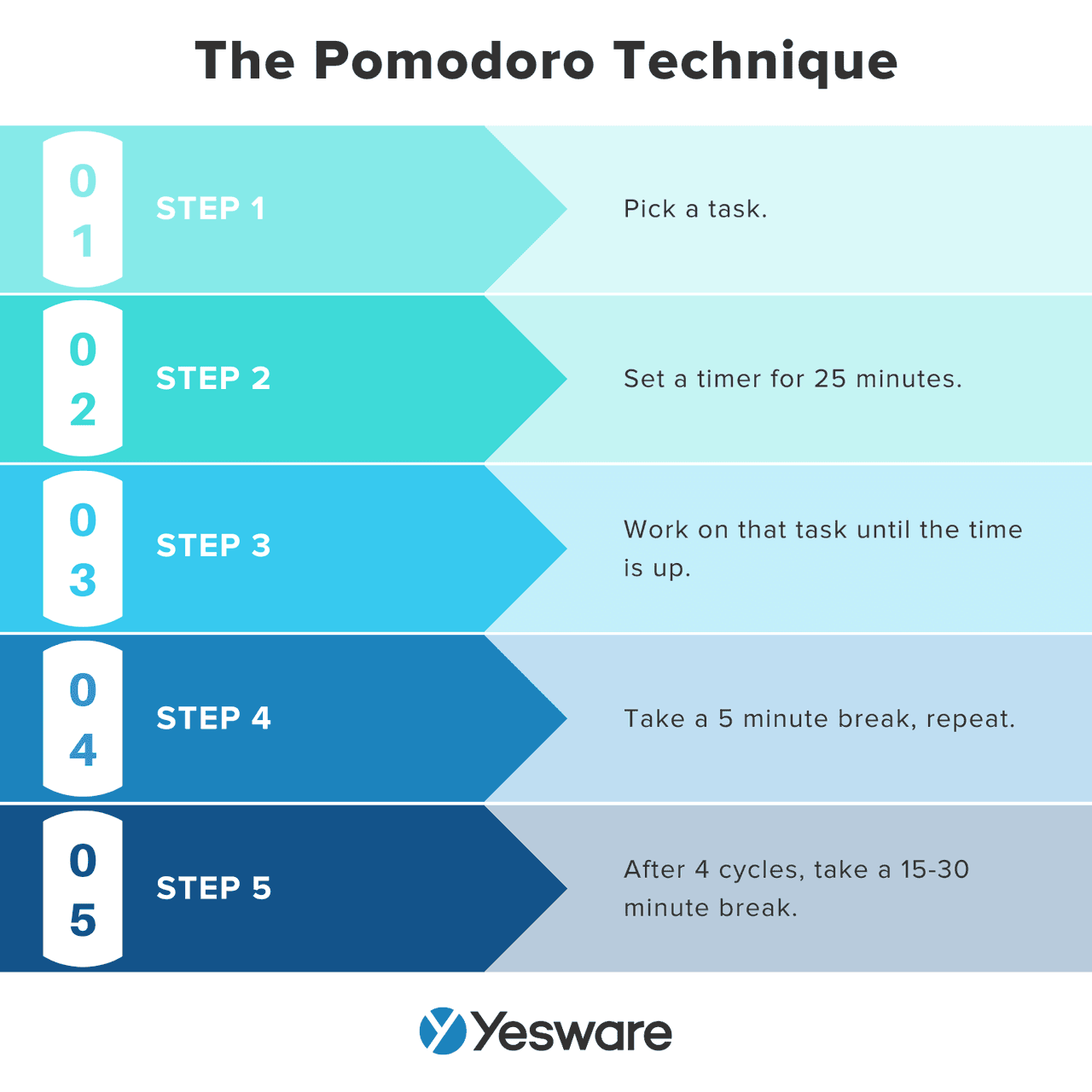
4. Find Training Opportunities Near You
Two questions for you:
Does your team have budget for training?
Have you asked your manager to receive training?
If there isn’t a clear block on budget and you haven’t asked for training, now’s the time.
A study of US office workers found 80% of those who were bored would feel more engaged if they learned new skills.
Often times, budget never gets allocated because employees don’t think to ask.
Google search: “[industry] training [city] [year]”
Bring up in your next one-on-one: Is there budget? Offer to do research.
Use this email template to follow up:
Subject line: Approval for {!training name}?
Hi {!First Name},
Following up re: the topic of {!training} that we discussed {!when}.
I dug into the training here [hyperlink], and it looks like I can get the following for {!cost}:
- {!Benefit 1}
- {!Benefit 2}
- {!Benefit 3}
Do you agree that this training would level-up my {!xx} skills specific to my role? If so, I can take the necessary steps to enroll. The next training is {!Date/time}.
5. Reach Out to Someone You Care About
A study of data from 3 million mobile phones found the number of friends we stay in touch with peaks at 25 years old. After that, it starts to decline.
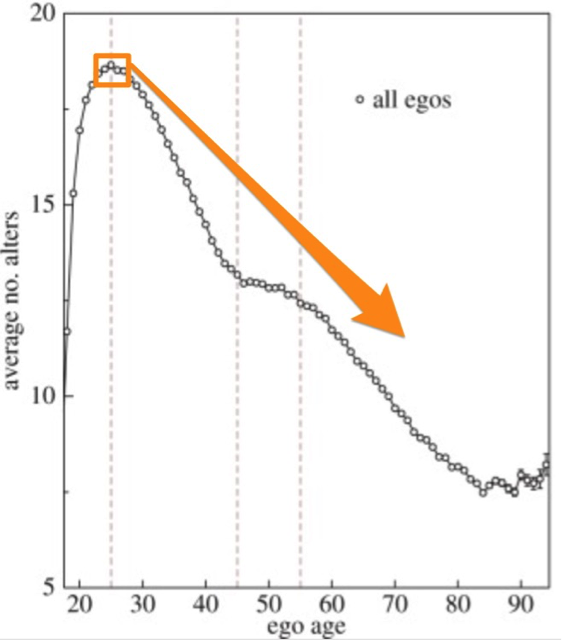
How to prevent it: Take 30 seconds to reach out to a friend you haven’t talked to in a while.
Why it’s worth it: strong social support is the common thread tying together the happiest 10%.
6. Stop Typing the Same Thing Over and Over (You Don’t Have To)
One of the reasons we can get bored is repetition of the same task.
And a way to make time pass faster is to stop while still getting the output you need.
Enter, automation.
Here’s our favorite app (full disclosure: we developed it with you in mind):
Email Templates is a tool that saves the messaging you keep using in emails, with custom placeholders.
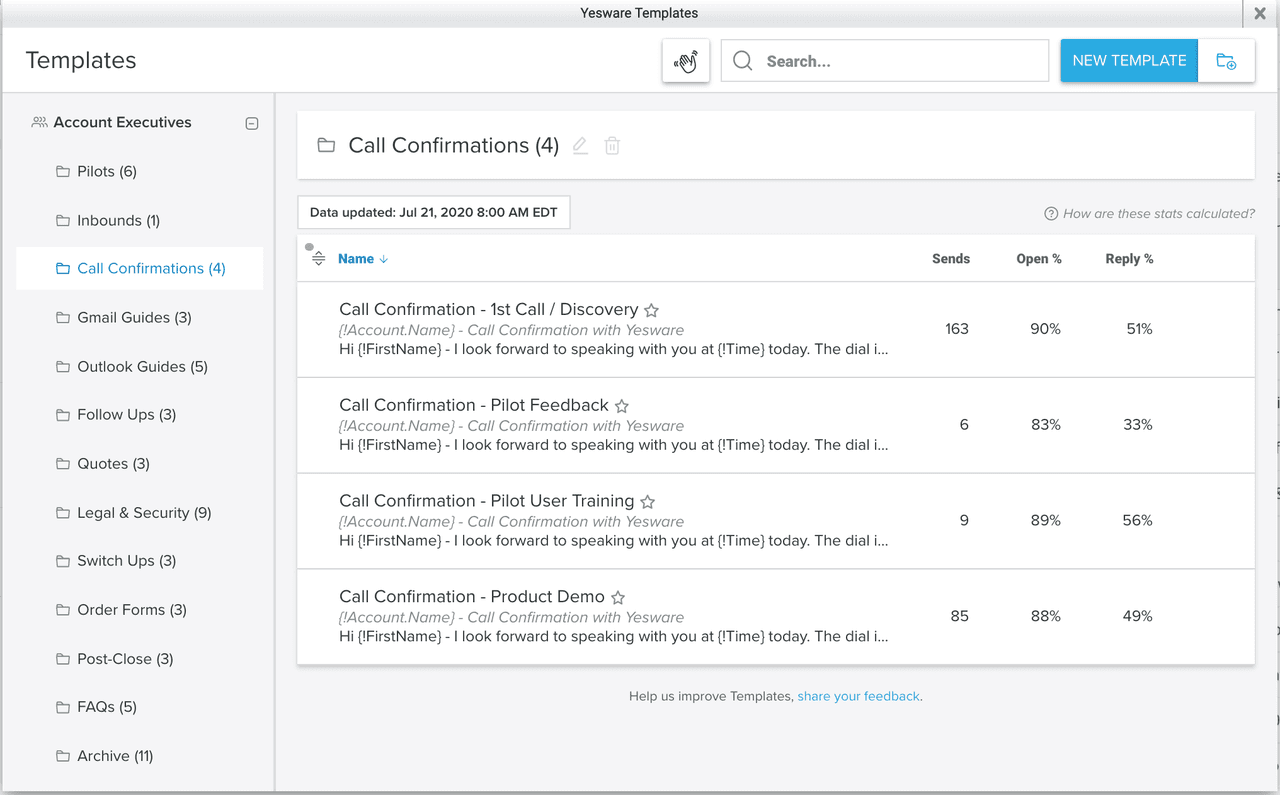
It’s great for saving time with:
Meeting recaps | Meeting agendas | Cold outreach | Follow-ups | Formal Emails
Because you go from spending 13 hours a week on email to 30 seconds per email sent.
Tip: Take time off your plate with ready-to-use email templates:
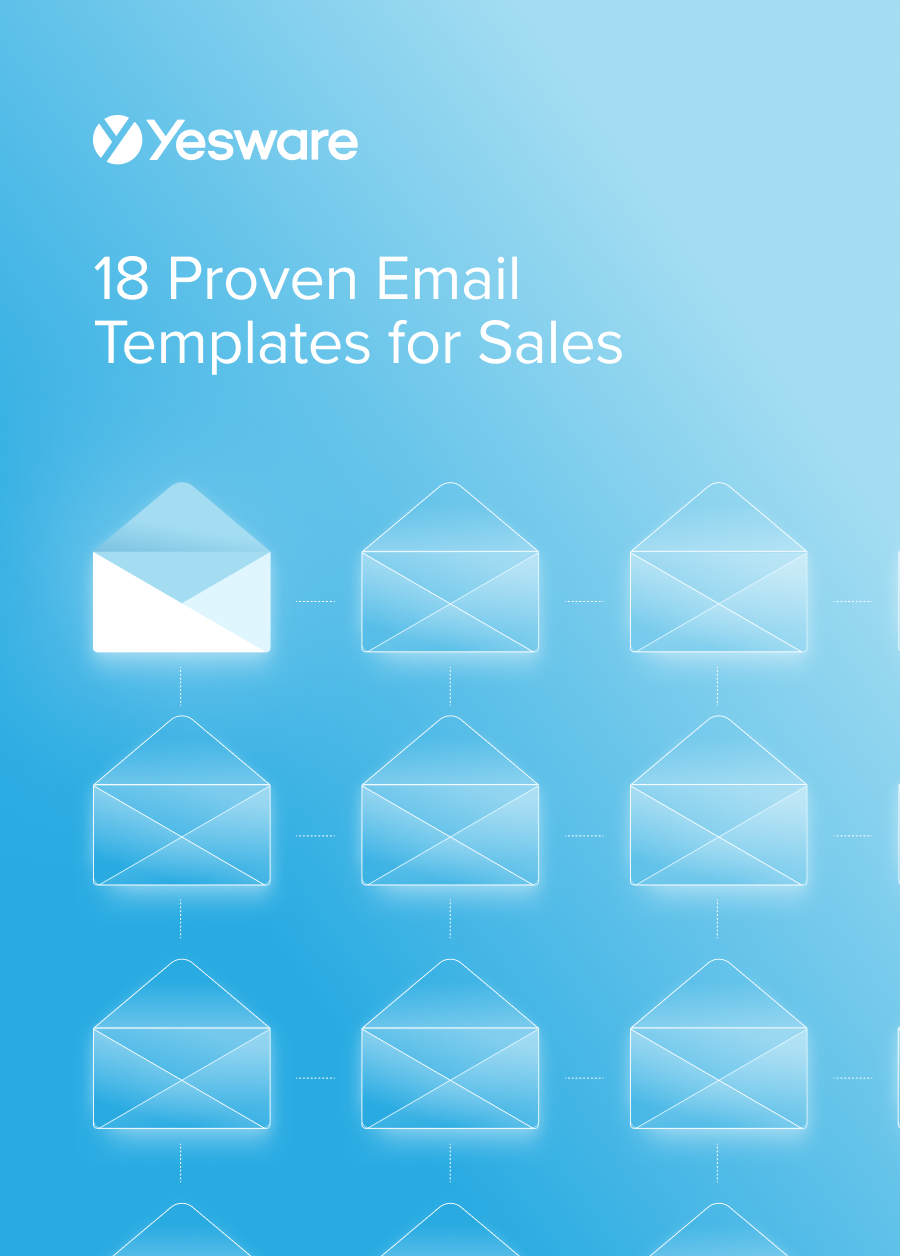 18 Proven Email Templates for SalesWinning email templates for cold outreach, follow-ups, and nurturing relationships – backed by data and real-world examples.
18 Proven Email Templates for SalesWinning email templates for cold outreach, follow-ups, and nurturing relationships – backed by data and real-world examples.
7. Find a Motivational Quote for Your Desk
Science tells us that positive emotions lead to a 12% spike in productivity. And when we’re productive, time goes by faster. We aren’t sitting there being hyper-aware of ourselves.
So: find a good quote, and then write it on a Sticky note for your desk or print it out.
Grab 50 motivational quotes here.
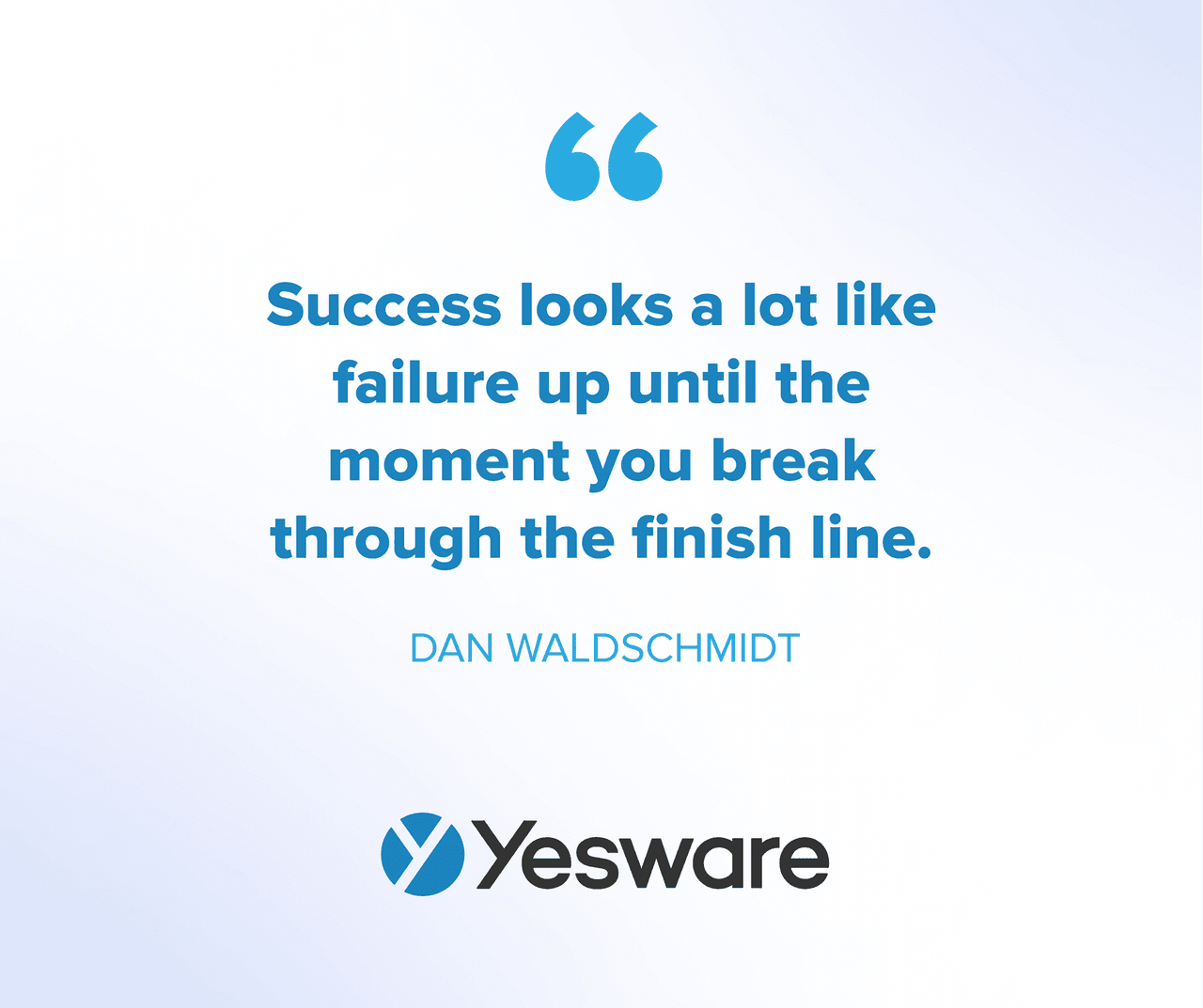
8. Toss on a Good Playlist
Music can be even more motivational than a good quote.
A research experiment held on treadmills found that motivational music increased endurance by 15%.
Maybe you want music to push away boredom with tasks on your list already. Or you might want to use it for tasks on this list. Either way, take your pick:
9. Break up Less Pleasant Tasks Into Smaller Intervals
Remember, when you’re doing something you don’t enjoy, time passes significantly slower.
So, split up your less pleasant tasks into smaller time intervals.
For example, if you have a task that will take 2 hours, split it up into four 30-minute task intervals, spread out across multiple days.
This will not only make time go by faster but you’ll see a better outcome of the project because of increased productivity and morale.
10. Find a New Gmail Shortcut to Start Using
Here are the top three shortcuts I had no idea about before we wrote a post with 33 of them:
- Mark an email as unread with shift + u.
- Start a reply by pressing r — or press a for reply-all.
- Add a color to your Gchat with ▲ + ▲ + ▼ + ▼ + ◀ + ▶ + ◀ + ▶ + b + a + Enter (Okay, this one’s more for fun.)
Start using keyboard shortcuts and you can save 8 full working days over the course of a year.
11. Go Run an Errand You’ve Been Putting Off
We prefer to be busy when we know we’re being productive.
Case in point: in an experiment, students had two options:
Option A: Have a bracelet in your possession and spend 15 minutes sitting idle with it.
Option B: Spend 15 minutes disassembling it and building it into a second bracelet.
The majority of students chose option B because it kept them busy.
(What’s most interesting is they only chose B when it involved making a second bracelet. When Option B was to disassemble and re-assemble the same bracelet, they chose Option A.)
12. Clean Your Space
Research shows that organization of our environment affects our attitudes and our productivity.
At home: People who describe their living space as “cluttered” are more likely to be depressed. This was proven as part of a study using linguistic analysis software in 2010.
At work: A 2011 Princeton University study found that clutter (“task-irrelevant objects”) overwhelms our visual cortex. It makes it harder for us to concentrate and complete tasks.
What to do: Throw out any trash and put things back that aren’t in their designated place. Then, group the remaining items into categories.
13. Make a To-Do List
We can get bored with tasks we’re given because we aren’t clear on the goal or we haven’t bought into it.
On the flip side, we’re 11 to 25 percent more productive when we are working toward a goal. We’ve known this since the 1960s with studies by psychologists Latham and Locke.
Here’s what to do about it: make a Notes doc on your laptop, phone, or on a piece of paper. Divide it into three sections: Goals for today, Goals for EOW, and Goals for EOM.
The good news: we already have buy-in for tasks that we give ourselves.
14. Add Automation to Your Workflow
One of the biggest time-wasters? Manually completing tasks you can easily automate.
Do you send multiple emails out a day? Grab a tool like campaigns that does it for you.
Drop in a list of recipients, create different touches, set the time for each touch, click send, and boom, you’re done.
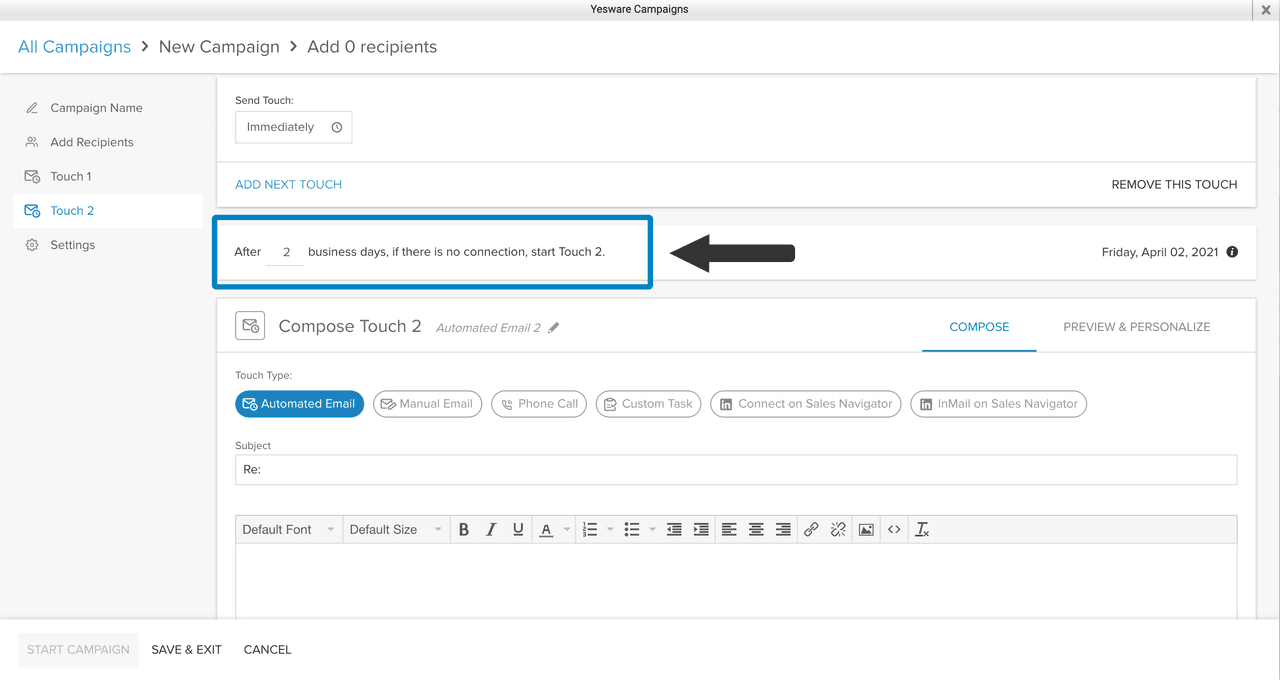
Your emails will automatically send if there is no response — that’s the power of automation.
15. Find (And Get) A Good Book
Reading for 6 minutes a day can reduce stress by 68% and helps us decide, plan, and prioritize better at work and in life.
Here are some recommendations:
- Check out these 21 books for business leaders, team managers, and inspiration.
- Check out these 17 sales books for maximizing your sales performance and results.
16. Get Yourself Outside for Five Minutes
Taking a walk outside makes you more creative — it’s proven.
A Stanford University study found that walking increases creative production more than two-fold. That, and outdoor stimulation has a separate, positive impact.
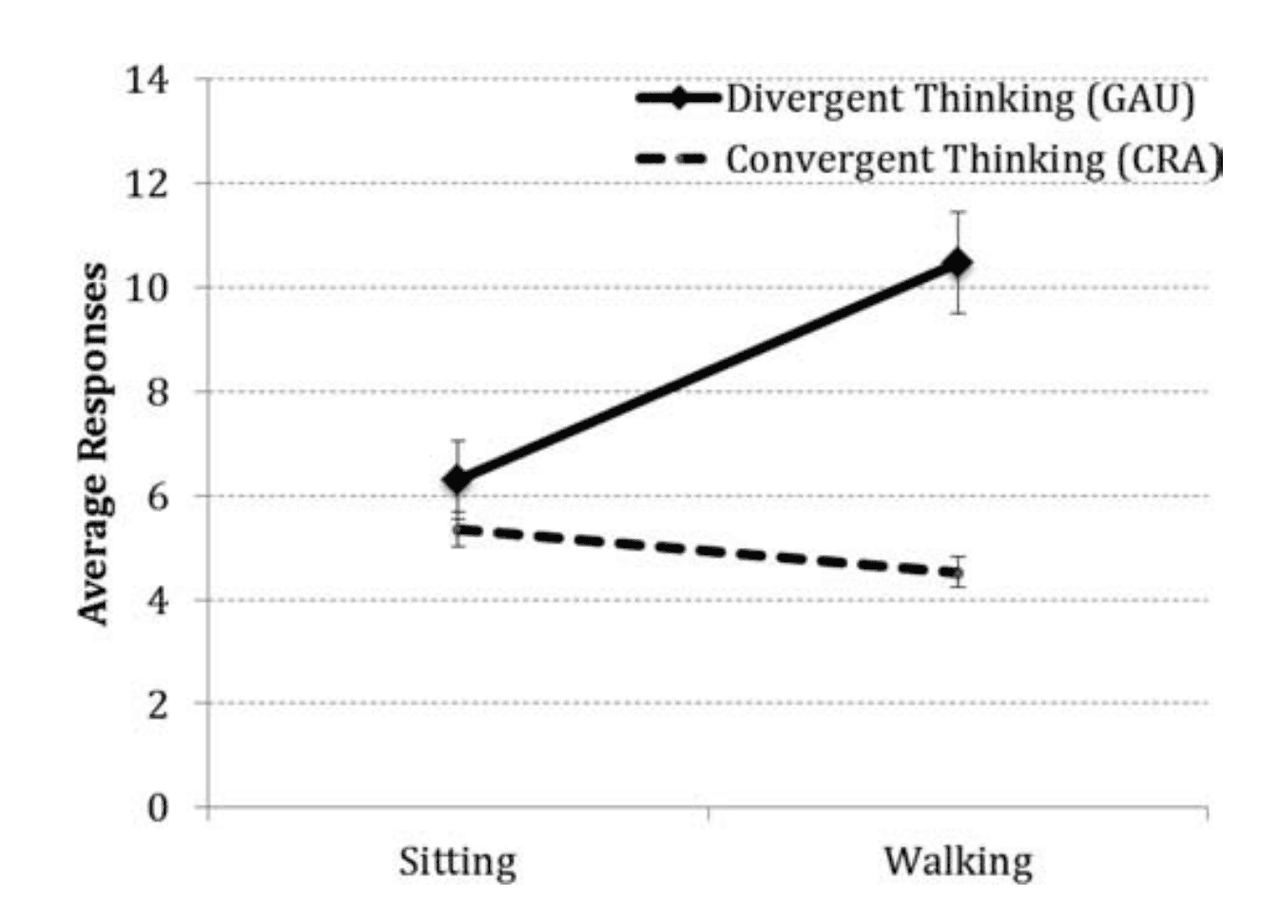
17. Reward Yourself
As the old phrase goes, “time flies when you’re having fun.”
Challenge yourself and set goals that you work at accomplishing and when you achieve these goals, treat yourself.
Why?
This will help with job satisfaction, confidence, and overall morale.
18. Stop Wondering How to Make Time Go By Faster
Here’s what I mean by this one: it’s time to act.
We all have things in our life (work and personal) that we know we could improve on.
How to start: pick a new skill you want to dig into on your own at work or a bad habit outside of work to cut.
Examples:
- Block off one hour per week to research growth articles for your role;
- Set up a daily trigger to end one of these 7 common morning routines.
Then, set up a trigger and a reward.
Having both of these things make it easier for you to succeed; it takes 66 days to form a new habit.
That’s all for now!
Tweet at us at @Yesware if you have any tips or feedback.
This guide was updated on September 27, 2022.
Get sales tips and strategies delivered straight to your inbox.
Yesware will help you generate more sales right from your inbox. Try our Outlook add-on or Gmail Chrome extension for free, forever!
Related Articles
Ginelle DeAntonis
Casey O'Connor
Casey O'Connor
Sales, deal management, and communication tips for your inbox

